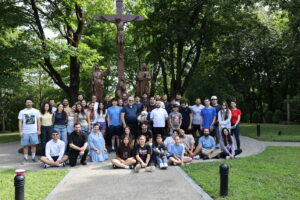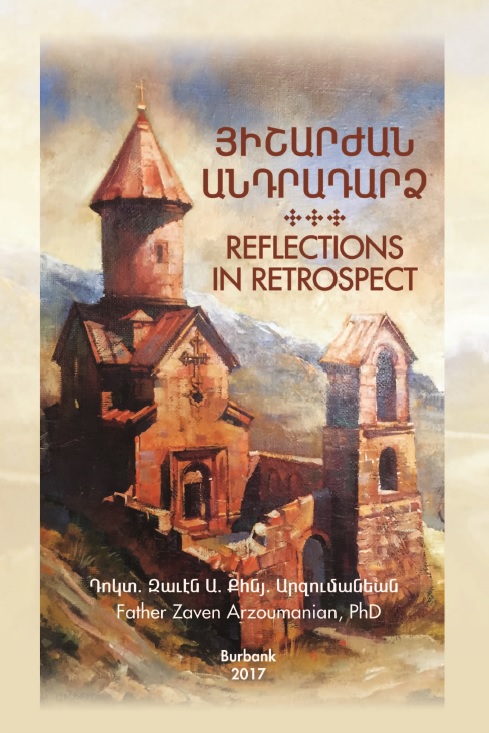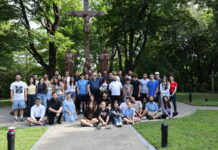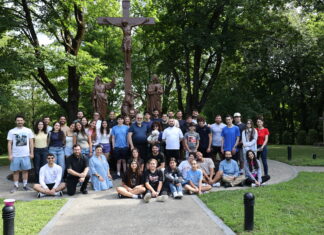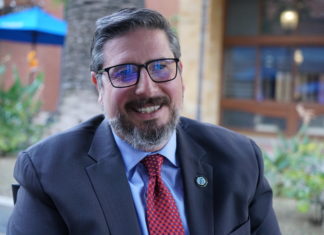I don’t know whether Armenians write memoirs any more than members of other ethnic groups, but certainly the Armenians of previous generations did not shirk from describing the terrible events of persecution that they endured and survived. American Armenians continue to write their accounts of lives spent in different fields of endeavor, while describing the Armenian aspect of their experiences and heritage. Armenian priests have a special place in Armenian memoir literature because of their frequently literate backgrounds and their broad knowledge of Armenian community life. Fr. Dr. Zaven Arzoumanian is one such recent writer. He recently authored Reflections in Retrospect: Memoirs of Pastor’s Six Decades of Service (Burbank, 2017), a bilingual book of 266 pages (134 in English and the rest in Armenian) published by the Western Diocese of the Armenian Church of North America.
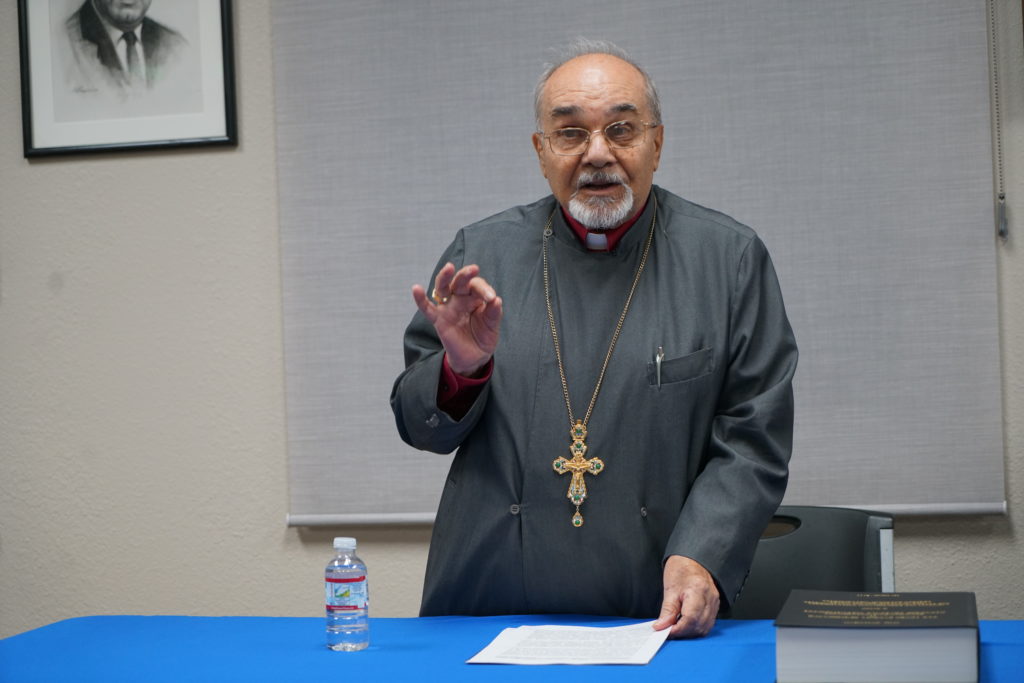
Fr. Arzoumanian has 60 years of pastoral experience, meaning that he has much material to draw upon. After ending his career as a parish priest, he dedicated himself to writing books, and published 17, while lecturing to different Armenian communities and continuing service to the Armenian Church. He confesses that he wrote the present volume without a diary at hand.
Fr. Arzoumanian starts his story with his father’s deportation from Everek, near Kayseri. He ends up moving to Cairo in 1922, opening a tailor shop, marrying Serpouhi Nishanian and having six children. Fr. Arzoumanian proudly points to their 17 grandchildren and 28 great-grandchildren as part of the proof on the centennial of the Armenian Genocide that the plan of the criminal organizers failed. His father’s father Hagop eventually also came to Cairo and published the Armenian-language History of Everek in 1935.
Fr. Arzoumanian was born as Taniel in 1933 and went to the Kalustian National School in Cairo, learning four languages. His grandfather took him to church on Sundays and in 1945 his mother’s brother was ordained as a priest. In 1949 he was accepted to the Seminary of the Catholicosate of Cilicia at the age of 16, and in 1954, he was ordained a celibate priest.
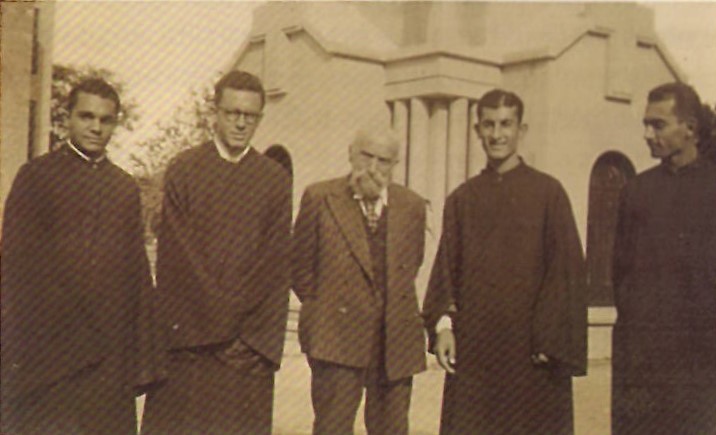
The book of memoirs sketches a number of memorable events which Fr. Arzoumanian witnessed, such as the contested election of the Catholicos of Cilicia in 1956. However, he reserves the fuller version of such historical events for his prior voluminous work, the continuation of Archbishop Maghakian Ormanian’s Azkabadum.
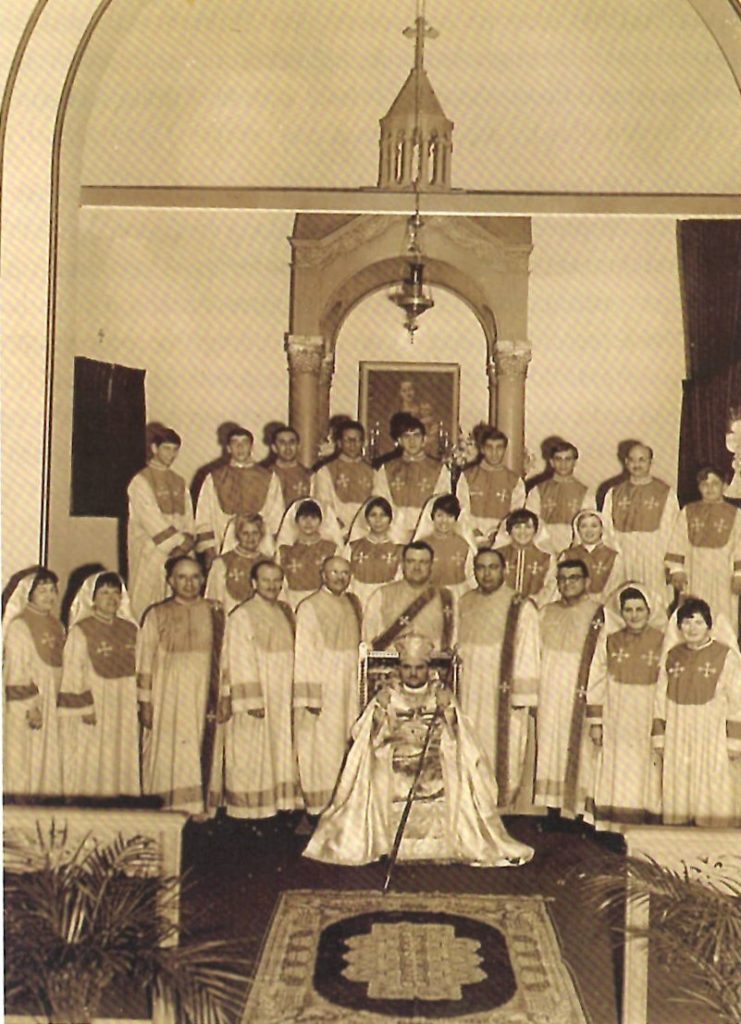
Fr. Arzoumanian describes his service as the pastor of the Armenian community of Ethiopia (1957-59) and as pastor of Holy Trinity Church and St. Sahag-St. Mesrob Church in Philadelphia. He left Philadelphia after 20 years to help establish the first Armenian church in Florida, St. David Armenian Church in Boca Raton, and continued as its pastor for another 20 years, until 2002. For several years after this, he served the community of Pasadena during the construction of St. Gregory the Illuminator church.
